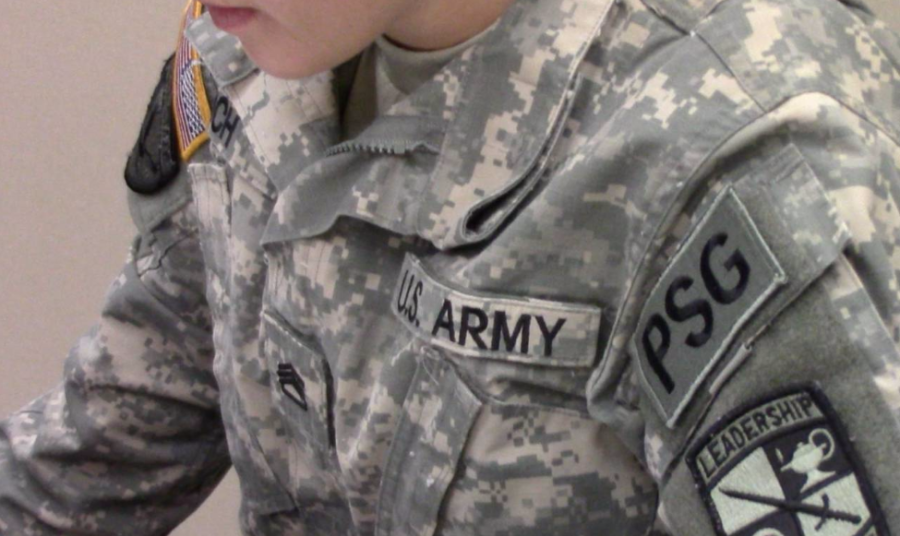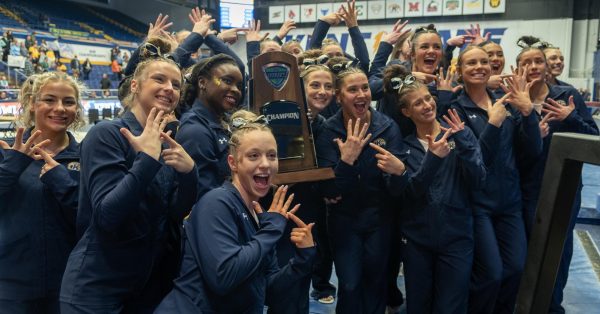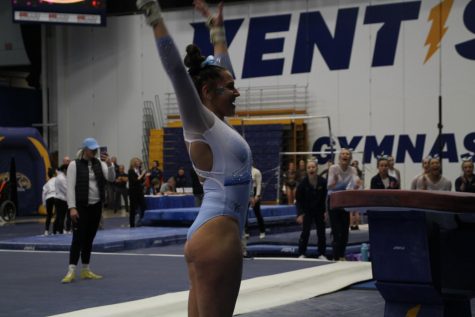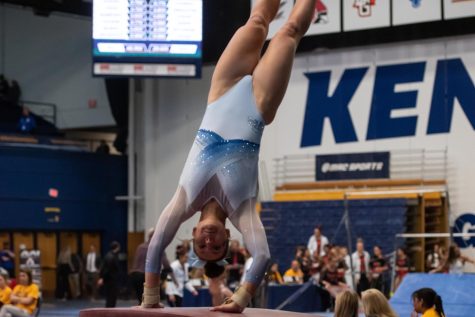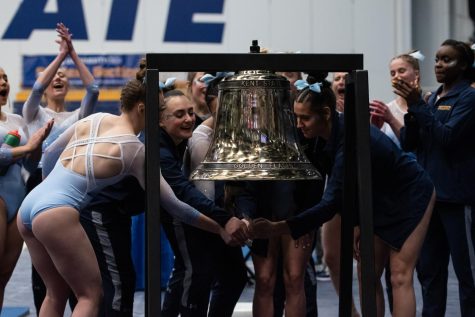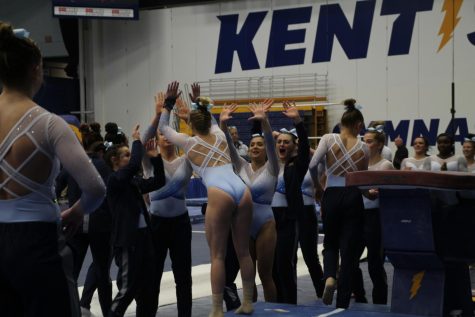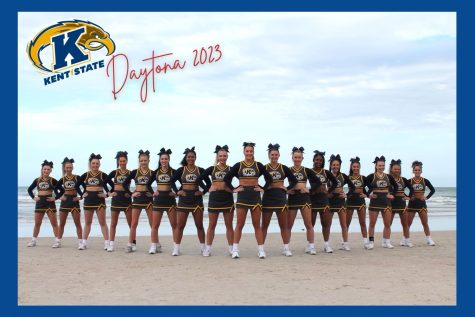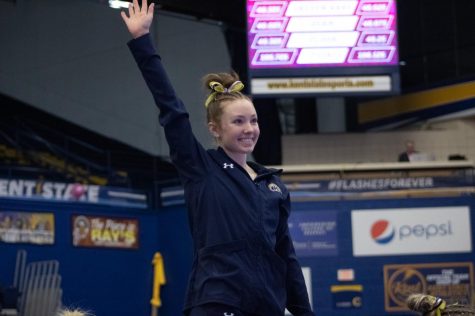Following a path of fashion in ROTC
December 4, 2016
Kent State junior fashion merchandising major Alexandra Reich remembers her first Leadership Development Exercise (LDX) trip with a veil of embarrassment and confusion.
During the trip to Camp Ravenna, Reich, along with the others, were given M-16s and a black box. Instructions were given to insert and hold up the magazine. This was the first time Reich had seen or touched a weapon, and she was dumbfounded.
“I was so confused and I finally got the confidence to raise my hand and (ask) ‘I didn’t get my magazine, can I throw away this black box?’” Reich said.
The cadet sergeant approached her and explained the box was the magazine, held the ammo and inserts into the weapon, Reich said.
“Everyone just laughed at me and looked at me … I was so embarrassed because I was thinking a magazine like a fashion magazine,” she said. “From then on I didn’t raise my hand the rest of the trip. It was a hard learning experience at the time, but it’s a funny thing now.”
Reich is the first student to major in fashion merchandising and minor in military leadership studies. Although she said she has settled into a routine now, the path was not easy.
“I didn’t feel appreciated,” Reich said. “I felt (like an) outcast and I didn’t feel like I fit in either of them even though I knew I loved fashion. With fashion, I kind of have to pave my own path, I think.”
Reich’s athletic ability and extensive background in various sports — from biking and triathlons to gymnastics and cheerleading — helped her fit in with ROTC. She even tried out for Kent State’s D1 cheerleading squad as a freshman, but unfortunately did not make the team, something she considers her biggest failure.
“Even though I failed at cheerleading, it gave me a great opportunity for my future, and (I found) myself (involved in) something I would have never ever chose,” Reich said. “So I guess choosing to standout was the better route than trying to fit in with a cheerleading uniform.”
Within the program Reich is a model soldier. But outside, she takes on a different personality.
“You would never know she was in ROTC outside of ROTC,” said Daniel Mueller, executive officer and assistant professor of military science. “She goes completely girly girl. And then when she comes in and puts a uniform on, she flips a switch into the army mode and is directive and so forth.”
Tiffany Gainer, a senior psychology major and member of ROTC, said a lot of people are surprised when they see a female soldier who’s very feminine outside of the program, and sometimes it’s difficult for people to take them seriously.
“When people see me in a little skirt and my sorority shirt and … my hair is done … then they’re like, ‘Oh, what do you do?’ and I say ‘I’m in the army,’ They’re really surprised … I didn’t know I couldn’t do both,” Gainer said. “No female — no matter what they are in their downtime — should ever have to prove themselves a million times more than a man just because she’s that kind of female.”
Gainer said she is supportive of Reich and has fought for her in the program because she works 10 times harder than anyone else.
“She blows everyone away with her physical competitiveness and ability,” Gainer said. “She’s one of the most physically capable people in (Kent State’s) ROTC … I’ve seen.”
Although Reich now has the second highest PT score, a test based on physical fitness, she is working hard to continue her success in the program.
“It has allowed me to display leadership … I wanted to have the higher standards, and I didn’t want to be a follower,” Reich said, “And in fashion you’re not a follower, you set the standards. So it kind of goes hand in hand, in a different way.”
Adriona Murphy is the education, health and human services, contact her at [email protected].


